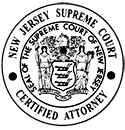5.10D RES IPSA LOQUITUR
In any case in which there is a claim that the defendant was negligent, it must be proven to you that the defendant breached a duty of reasonable care which was a proximate cause of the plaintiff’s injuries. Generally, the mere fact that an accident happened, with nothing more, does not provide proof that the accident was a result of negligence.
In a negligence case, the plaintiff must prove that there was some specific negligent act or omission by the defendant which proximately caused the accident. However, in certain circumstances, the very happening of an accident may be an indication of negligence.
Thus, the plaintiff may, by providing facts and circumstances, establish negligence by circumstantial evidence. If the instrumentality causing the injury was in the exclusive control of the defendant, and if the circumstances surrounding the happening were of such a nature that in the ordinary course of events the incident would not have occurred if the person (entity) having control of the instrumentality had used reasonable care under the circumstances, the law permits, but does not require, the jury to infer negligence from the happening of the incident.
Plaintiff’s voluntary act or neglect contributing to the occurrence prevents the inference from being drawn. However, the mere fact that plaintiff was present does not defeat the inference. Rather, you must find that plaintiff’s action or negligence was a proximate cause of the occurrence to prevent the inference.
For instance, assume someone was walking on a sidewalk under a piano, which was being lifted by a crane to go into the upper floor, and assume further that the piano fell onto the pedestrian. The falling piano would be an indication of negligence, since pianos do not usually fall from the sky without someone being negligent. The mere fact that the pedestrian was present is not a voluntary act or neglect.
In summary, if you find by the greater weight of the evidence that at the time of the incident (1) the defendant had exclusive control of the instrumentality causing the occurrence, (2) that the circumstances were such that in the ordinary course of events the incident would not have occurred if the defendant had exercised reasonable care and (3) plaintiff’s voluntary act or negligence did not contribute to the occurrence, then you may infer that the defendant was negligent.
[Where “exclusive control” is in issue]
As to the requirement of “defendant having exclusive control”, this implies that the control was of such type that the probabilities that the negligent act was caused by someone else is so remote that it is fair to permit an inference of negligence by defendant.
If you infer that the defendant was negligent, then the plaintiff need not point out any specific conduct or inaction by the defendant that was a breach of his/her duty of reasonable care. This inference was drawn, even if plaintiff has introduced some evidence of defendant’s specific negligence.
[If defendant provides explanation, add:]
If you do infer that the defendant was negligent, then you should consider the defendant’s explanation of the accident. If the explanation causes you to believe that it is no longer reasonable to infer that the defendant was negligent, then the defendant is entitled to your verdict. But if giving fair weight to all of the worthwhile evidence, you decide that it is more likely than not that the defendant was negligent, then your verdict should be for the plaintiff.



